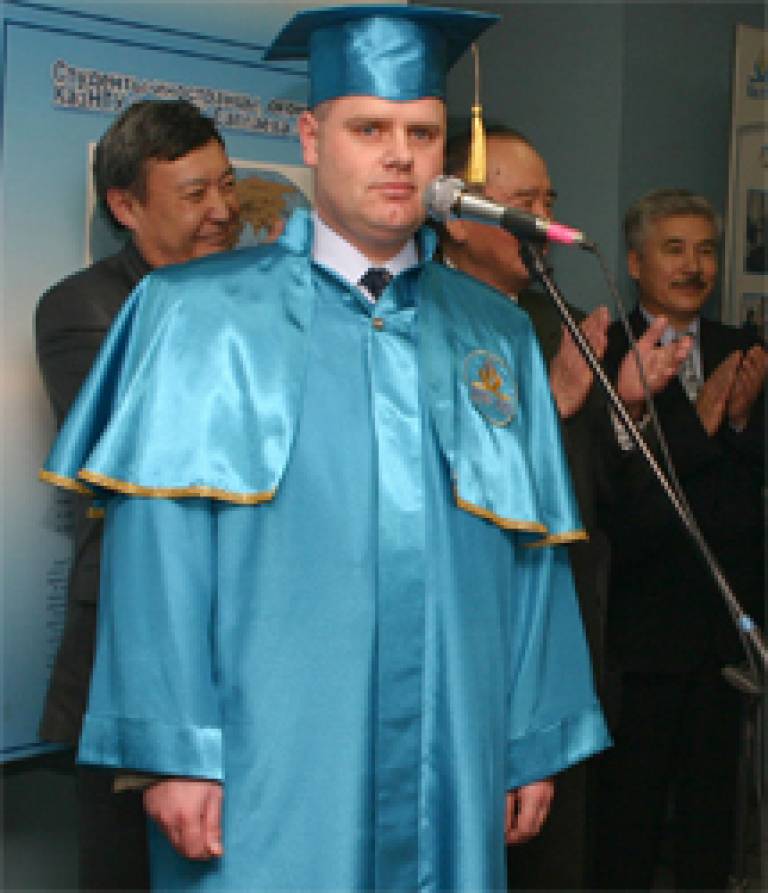Kazakh professorship for UCL academic
4 May 2006
A UCL academic has been awarded an honorary professorship by the Kazakh National Technical University (KazNTU).
 Professor Stefaan Simons (UCL Chemical Engineering) has spent many years helping the university to gain the skills and resources to implement an effective chemical engineering programme at KazNTU.
Professor Stefaan Simons (UCL Chemical Engineering) has spent many years helping the university to gain the skills and resources to implement an effective chemical engineering programme at KazNTU.
Professor Simons first worked in Kazakhstan in the early 1990s, just after the break-up of the Soviet Union, at a time when chemical engineering teaching in the nation was highly specialised. At the expense of learning the theoretical fundamentals of chemical engineering, Kazakh undergraduates were taught specialist subjects of a kind that their UK counterparts would only encounter in the workplace.
With the funding of Tempus, an EU initiative to support the development of education in the former Soviet states, Professor Simons worked to put in place a more integrated approach to chemical engineering at KazNTU, to better equip its students for the modern challenges of academia and industry.
After Professor Simons' initial work in Kazakhstan, the Tempus funding ran out, and he left the further development of the subject in the hands of Dr Gulya Yeligbayeva, a senior lecturer within the Faculty of Chemical Technology (Dr Yeligbayeva had spent several months at UCL receiving training in chemical engineering teaching methods and software tools). However, many years on, a chance meeting at an industrial steering committee dinner with businessman Nick Amott of the chemical company Fluor afforded Professor Simons with another way to support KazNTU.
Fluor is currently building a huge gas complex by the Caspian Sea, and Professor Simons managed to persuade the company to fund a computer design suite for KazNTU, which would give students access to computer simulation software to design a chemical plant - a process that is a major part of the chemical engineering syllabus at UCL. The suite is now in use and is a great success amongst Kazakh students, who can hardly wait to use the new software.
Professor Simons' honorary professorship was awarded at the official opening of the computer suite, amid three days of festivities. He said: "Kazakhstan is so rich in oil, gas and mineral reserves - there is even a saying that it boasts every element in the periodic table! Up to now, the native population of Kazakhstan has not had the necessary skills to turn these resources into chemicals, but with more effective chemical engineering training, companies such as Fluor should be able to employ KazNTU graduates instead of just bringing in a foreign workforce to the country."
There are currently no PhD programmes in Kazakhstan, and the Kazakh government is interested in sending its students to the UK for postgraduate education, with UCL a strong contender. Dr Simons said: "It would be wonderful to build on our strong relationship with KazNTU by bringing Kazakh students to UCL."
To find out more about Professor Simons, use the link at the bottom of the article.
Image 1: Professor Simons receiving his honorary professorship
Image 2: Students on computers in the new suite
 Close
Close

